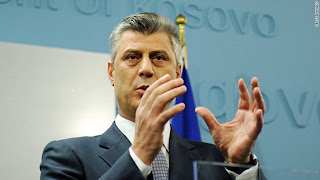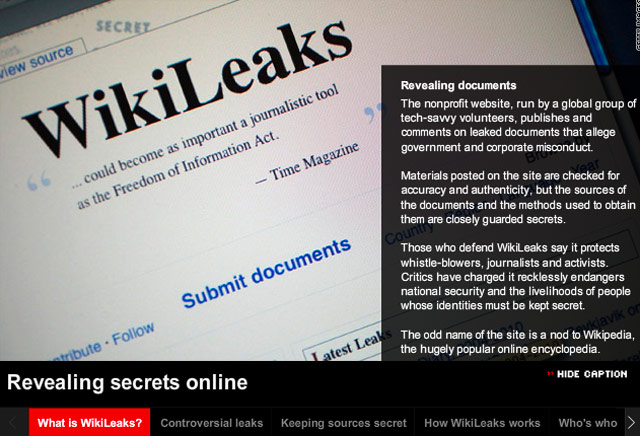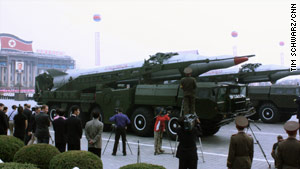As optimism flowed from U.S. leaders over the prospect of a settlement freeze in the West Bank, an Israeli government source on Monday tapped the brakes, saying that an agreement over such a freeze still had not been reached.
On Sunday, President Barack Obama had called the possible development "promising" and a "very productive step." Secretary of State Hillary Clinton also praised the possible settlement freeze.
But the Israeli government source said that Prime Minister Benjamin Netanyahu is insisting that a number of conditions be met, and that only when those conditions are met will there be an agreement that the Cabinet would vote on. The source did not say what those conditions were.
Still, Clinton gave the Israelis credit for moving in that direction.
"This is a very promising development and a serious effort by Prime Minister Netanyahu," she said.
Clinton said the United States is in close touch with both sides in the conflict and is working "intensively to create the conditions for the resumption of negotiations which can lead to a two-state solution and a comprehensive peace in the region."
Netanyahu spoke to his Cabinet ministers Sunday morning, a day after he met with top officials to discuss the settlement-freeze proposal made by the United States, according to Israeli government sources.
The proposal could be a difficult sell for right-wing members of the coalition government.
Reaction was mixed among Israeli officials, several of whom were already responding negatively to the news.
Minister of Infrastructure Uzi Landau said before Sunday's meeting that he would not approve the proposal if the Cabinet voted on it.
"This is simply playing into the hands of all of the terror organizations here in the area, which will make it clear to them that terror pays off. ... Our future partners in the region learn that they simply don't have to make any concessions; they have to wait until more and more pressure will be applied on the Israeli side," said Landau, a member of the right-wing Yisrael Beiteinu party.
But Eli Yishai, leader of the right-wing religious Shas party, hinted that his party might support the proposal, noting that settlement construction could resume after 90 days in the West Bank, and continue unimpeded in Jerusalem.
"Under these conditions, this can be examined," he said, adding that the party's spiritual leader would have the final say.
And Knesset member Yohanan Plesner said his Kadima party welcomed efforts to restart peace talks.
"It is about time that an understanding would be reached so that the peace negotiations could focus on substantive issues rather than on the debilitating dispute over settlements," he said.
In return for the temporary freeze, the U.S. government would oppose international efforts to impose a political solution on Israel in the peace process or to "delegitimize" the country, said the Israeli government sources, who would not speak for attribution.
Mohammed Shtayeh, a member of the Fatah Central Committee, told CNN that the Palestinian negotiating team was "hoping for a much better deal," including a freeze on construction in "all Palestinian territories" throughout negotiations.
Shtayeh said he and other Palestinian negotiators were waiting for an official notification from Washington about the proposal. Leaders would later hold a meeting to discuss any offers on the table and release an official position, he said.
"The most important thing is that it is very unfortunate that such a deal is being conducted between Tel Aviv and Washington, without really any consultation with the Palestinians," he said.
Mustafa Barghouti, an independent Palestinian legislator, described the proposal as "nonsense."
"Why should Israel receive incentives for stopping violations of international law? And why is the freeze only for 90 days if everyone agrees that settlements are a violation of international law and are the main obstacle to peace?" he asked.
As part of the proposed deal, the White House would not ask for another extension of the settlement construction freeze beyond the 90 days, the Israeli government sources said. And, they said, Obama would ask Congress to approve the sale of 20 advanced fighter planes to Israel.
Silvan Shalom, a Cabinet minister from Netanyahu's Likud party, said he was opposed to the continuation of the building freeze, noting that such an agreement with the U.S. would be a "strategic mistake."
"The U.S is a friend of Israel, and U.S support has never been conditional before," he said.
Knesset member Uri Orbach, head of the Jewish Home right-wing national religious party, said he would push for his party to quit the coalition government if a settlement moratorium is renewed.
"We will not be partners to Netanyahu and the Likud [party]'s freezing obsession," Orbach said.
The main umbrella group of Jewish settlers in the West Bank also sharply criticizied the proposal Sunday.
"This proposed deal, if accepted, represents a fundamental collapse of our government's integrity and national resilience. The Israeli leadership should never allow its citizens to become pawns to the whims of the international community," a statement from the Yesha Council of Communities in Judea and Samaria said. "We are our own sovereign community whose very security and future should not be dictated by President Obama or Secretary Clinton."
Hagit Ofran, settlement watch project director at Peace Now, said her organization would continue to fight settlement construction.
"In order to achieve peace, Israel must halt all the construction," she said, including new units built since an earlier freeze ended September 26.
The reported American proposal does not include any limit on Israeli construction in East Jerusalem, which has also been a source of major conflict between Palestinians and Israelis
A senior U.S. administration official said Friday that while talks between Clinton and Netanyahu on Thursday were substantive, there were no breakthroughs.
Another U.S. official said that the prime minister isn't budging on settlements in a way that will satisfy Palestinians, who broke off the peace talks when Israeli resumed settlement construction in late September.
But it wasn't clear whether that meant Netanyahu was unwilling to compromise at all on settlements.
The American-brokered talks between Israel and the Palestinian Authority have broken down over the issue of continued Israeli settlement-building in the West Bank.
Israel's 10-month settlement freeze in the West Bank expired September 26, effectively bringing an end to the talks. Tensions were exacerbated last week when Israel announced plans to construct 1,000 new housing units in the majority Palestinian area of East Jerusalem.
The Palestinian Authority refused to go back to the negotiating table until the Israeli government extended the settlement freeze.
As the stalemate continues, the Palestinian side has threatened to seek international recognition of a Palestinian state based on borders from 1967, a move opposed both by Israel and the United States.
Clinton met Thursday with Netanyahu about the resumption of peace talks. Their meeting was followed by a joint statement that said their discussion included "a friendly and productive exchange of views on both sides."
On Sunday, Netanyahu told Cabinet ministers that he bring a proposal to them "if and when it is complete."
Source: CNN

















